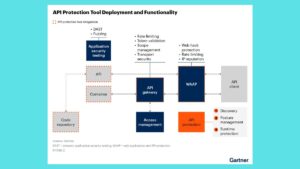The Future of Talent Management: Key Trends and Strategies for Success

As organizations evolve, so does the approach to managing talent. The role of talent management is no longer just about filling positions; it’s about fostering a culture of continuous learning, engagement, and development that aligns with the company’s goals and values. In today’s rapidly changing business landscape, companies need to adopt new strategies to manage talent effectively and drive long-term success.
This blog explores the future of talent management, focusing on emerging trends, challenges, and strategies that organizations can leverage to attract, retain, and develop top talent.
1. Employee-Centric Talent Management
The future of talent management will be shaped by a shift from company-centric to employee-centric approaches. Employees today expect personalized experiences in their career paths, learning opportunities, and development. This trend is largely driven by the changing workforce demographics, where Millennials and Gen Z make up a significant portion of the workforce. These generations value flexibility, purpose, and a clear path for growth.
Key Impacts of Employee-Centric Management:
- Personalized Development Plans: Employees want tailored development plans that align with their career goals and aspirations. Offering personalized learning opportunities based on individual strengths, skills, and career interests will be critical to talent retention.
- Flexible Work Models: The rise of remote work and hybrid models has made workplace flexibility a top priority. Employers that offer flexible work arrangements will be better positioned to attract and retain top talent.
- Career Path Transparency: Employees seek transparency about their career advancement opportunities. Regular feedback, clear expectations, and pathways for growth help build trust and engagement.
Future Outlook:
Employee-centric talent management will become the standard as organizations strive to meet the evolving expectations of their workforce. Companies that prioritize employee development, offer flexible work environments, and maintain clear communication around career progression will have a competitive edge in attracting and retaining talent.
2. The Role of AI and Data Analytics in Talent Management
Artificial intelligence (AI) and data analytics are transforming how companies manage talent, from recruitment to performance management. These tools provide real-time insights into workforce trends, help identify skill gaps, and enable more effective decision-making.
Key Impacts of AI and Data Analytics:
- Predictive Talent Management: AI-driven predictive analytics allow companies to forecast future talent needs based on workforce data and trends. This helps businesses anticipate skills shortages, succession planning needs, and workforce challenges before they arise.
- Performance Analytics: Data-driven performance management systems can analyze employee performance metrics and provide real-time feedback. This helps organizations identify high performers, coach underperformers, and ensure alignment with business goals.
- Employee Engagement Insights: AI-powered tools can gauge employee sentiment by analyzing feedback from surveys, social media, and other sources. This helps leaders understand engagement levels and address issues before they lead to attrition.
Future Outlook:
AI and data analytics will continue to play a central role in talent management. These technologies will not only improve decision-making but also enable companies to create more personalized, data-driven employee experiences that boost engagement and retention.
3. Continuous Learning and Development
The rapid pace of technological change is increasing the demand for upskilling and reskilling in the workforce. Companies must prioritize continuous learning and development to stay competitive and ensure their employees are equipped with the skills needed for future challenges.
Key Impacts of Continuous Learning:
- Upskilling and Reskilling: As automation and AI change job requirements, companies will need to invest in upskilling and reskilling programs to keep their workforce relevant. Offering online courses, certifications, and workshops can help employees develop the skills they need to adapt to new roles.
- Learning Culture: Creating a culture of continuous learning fosters innovation and employee growth. Encouraging employees to pursue new skills, take on challenging projects, and stay curious will lead to higher engagement and better performance.
- Personalized Learning Platforms: AI-driven learning platforms can provide personalized learning paths based on employees’ individual needs and career goals. These platforms offer on-demand access to resources that align with each employee’s learning style and pace.
Future Outlook:
Learning and development will be a critical component of talent management. Companies that build a strong learning culture and provide opportunities for growth will not only retain top talent but also foster innovation and adaptability in their workforce.
4. Employee Engagement and Well-being
Employee engagement and well-being are becoming increasingly important as companies recognize that a happy, motivated workforce is key to productivity and retention. Talent management strategies must focus on creating a work environment where employees feel valued, supported, and connected to the company’s mission.
Key Impacts on Engagement and Well-being:
- Mental Health Support: Providing mental health resources, such as access to counselors or stress management programs, is becoming essential in today’s talent management strategies. Companies that invest in their employees’ mental health will see higher engagement and lower burnout rates.
- Work-Life Balance: Promoting work-life balance through flexible working hours, remote work options, and wellness programs helps employees maintain a healthy balance between their personal and professional lives.
- Purpose-Driven Work: Employees increasingly want to work for companies that align with their values and offer a sense of purpose. Talent management strategies should focus on helping employees find meaning in their work and connect with the company’s larger goals.
Future Outlook:
Employee engagement and well-being will be top priorities for talent management. Organizations that support their employees holistically—focusing on mental, emotional, and physical well-being—will benefit from higher productivity, engagement, and retention rates.
5. Diversity, Equity, and Inclusion (DEI)
Diversity, equity, and inclusion are no longer just buzzwords—they are critical components of successful talent management. Companies with diverse teams perform better financially, are more innovative, and have higher employee engagement. The future of talent management will require companies to prioritize DEI initiatives to build more inclusive workplaces.
Key Impacts of DEI on Talent Management:
- Inclusive Hiring Practices: Companies must adopt inclusive hiring practices that attract a diverse pool of candidates. This includes reducing bias in recruitment processes, using diverse job boards, and implementing blind hiring techniques.
- Diverse Leadership Development: Companies should focus on developing diverse talent at all levels, ensuring that underrepresented groups have access to leadership opportunities and mentorship programs.
- Fostering an Inclusive Culture: Creating a truly inclusive workplace requires ongoing efforts to ensure that all employees feel valued and respected. This includes promoting open communication, offering diversity training, and fostering a sense of belonging.
Future Outlook:
As DEI becomes a cornerstone of talent management, companies that actively promote diversity and inclusion will stand out in the talent market. Fostering an inclusive environment where diverse perspectives are celebrated will lead to stronger collaboration, innovation, and business success.
6. The Importance of Succession Planning
Succession planning is a crucial component of talent management, ensuring that organizations are prepared for leadership changes and key talent transitions. In the future, companies will need to be more proactive about identifying and developing future leaders from within their ranks.
Key Impacts of Succession Planning:
- Leadership Pipeline Development: Companies must identify high-potential employees early and provide them with leadership development opportunities. This ensures a strong internal pipeline of talent ready to step into leadership roles when needed.
- Cross-Departmental Knowledge Sharing: Succession planning should include cross-functional training and job rotations to ensure that key employees gain a broad understanding of the organization. This prepares them for leadership roles by providing a holistic view of the business.
- Risk Mitigation: Succession planning helps organizations avoid disruptions in operations and strategy when key leaders or employees leave. A well-executed succession plan ensures continuity and stability.
Future Outlook:
Succession planning will be an essential part of future talent management strategies. Companies that prioritize leadership development and create robust talent pipelines will be better equipped to handle transitions and maintain organizational momentum.
Conclusion
The future of talent management is dynamic and employee-focused, driven by technological innovation, continuous learning, and an emphasis on well-being and inclusion. To stay competitive, organizations must adopt a proactive approach to managing talent, leveraging AI and data analytics, fostering a learning culture, and promoting diversity and inclusion.
By investing in employee development, supporting work-life balance, and prioritizing succession planning, companies can create a resilient and engaged workforce ready to meet the challenges of tomorrow.







